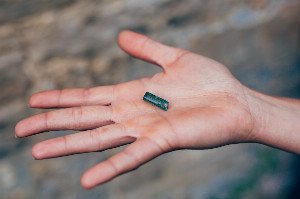Cora Benetti
“La casa ci sembra deserta senza di te.” Domesticità e mazzinianesimo nella famiglia Saffi-Craufurd
Introduction
“la casa ci sembra deserta senza di te.” domesticità e mazzinianesimo nella famiglia saffi-craufurd . Esplora il legame tra domesticità e militanza nel Mazzinianesimo ottocentesco attraverso la famiglia Saffi-Craufurd. Analizza affetti, politica e identità di genere nel Risorgimento.
Abstract
Il saggio indaga il rapporto tra domesticità e militanza nel mazzinianesimo ottocentesco, attraverso l’esperienza della famiglia Saffi-Craufurd. L’unione tra Aurelio Saffi e Giorgina Craufurd incarna un modello famigliare in cui affetti privati e ideali repubblicani si fondono in un progetto politico condiviso. L’analisi di epistolari, diari e pratiche quotidiane rivela dinamiche di genere, forme educative e processi di costruzione dell’identità politica. La villa di San Varano, centro della vita familiare, assume il ruolo di spazio simbolico in cui si intrecciano memoria risorgimentale, intimità e impegno civile. In una società in trasformazione, la casa e la famiglia diventano così laboratorio ideologico e luogo di trasmissione di valori patriottici. Il contributo si inserisce nel dibattito storiografico sulle connessioni tra amore, politica e memoria, valorizzando il ruolo della sfera affettiva e delle soggettività femminili nella storia del Risorgimento.
Review
This paper offers a highly compelling and timely investigation into the intricate relationship between domesticity and political militancy within the context of 19th-century Mazzinianism. By centering on the prominent Saffi-Craufurd family, the author skillfully uses their union as a microcosm to explore how private affections and republican ideals were not merely coexistent but profoundly intertwined in a shared political project. The evocative title, drawing directly from a personal communication, immediately signals a focus on the lived, emotional dimensions of political commitment, which is a significant strength of this proposed study and resonates deeply with current historiographical trends seeking to humanize and contextualize historical movements. The methodology outlined – a detailed analysis of epistolary exchanges, diaries, and everyday practices – promises a rich and nuanced understanding of family life as an ideological crucible. The paper's intention to delve into gender dynamics, forms of education, and the active construction of political identity within the household demonstrates a sophisticated analytical framework. Particularly noteworthy is the conceptualization of the Villa di San Varano as a "symbolic space" where Risorgimento memory, intimacy, and civic engagement converged, effectively elevating the domestic sphere to a vital laboratory for the transmission of patriotic values. This approach promises to shed new light on the often-overlooked affective dimensions of political adherence. By foregrounding the role of the affective sphere and female subjectivities, the paper is poised to make a substantial contribution to Risorgimento studies, gender history, and the broader history of political culture. It successfully positions itself within contemporary debates on the connections between love, politics, and memory, moving beyond traditional narratives to reveal how political ideals were forged and sustained through deeply personal relationships and daily practices. This work is clearly a valuable and insightful contribution that promises to enrich our understanding of how historical actors experienced and shaped their political worlds, and it is strongly recommended for publication.
Full Text
You need to be logged in to view the full text and Download file of this article - “La casa ci sembra deserta senza di te.” Domesticità e mazzinianesimo nella famiglia Saffi-Craufurd from Quaderni d'italianistica .
Login to View Full Text And DownloadComments
You need to be logged in to post a comment.
Top Blogs by Rating
Unveiling the Hidden Journeys:...
By Sciaria
The Healing Power of "Ahhh": M...
By Sciaria
The Geological Secret in Your...
By Sciaria
Favorite Blog
Beyond the Forbidden: When His...
By Sciaria
Unlock Your Brainpower: Master...
By Sciaria
Beyond Repair Shops: Unlocking...
By Sciaria





